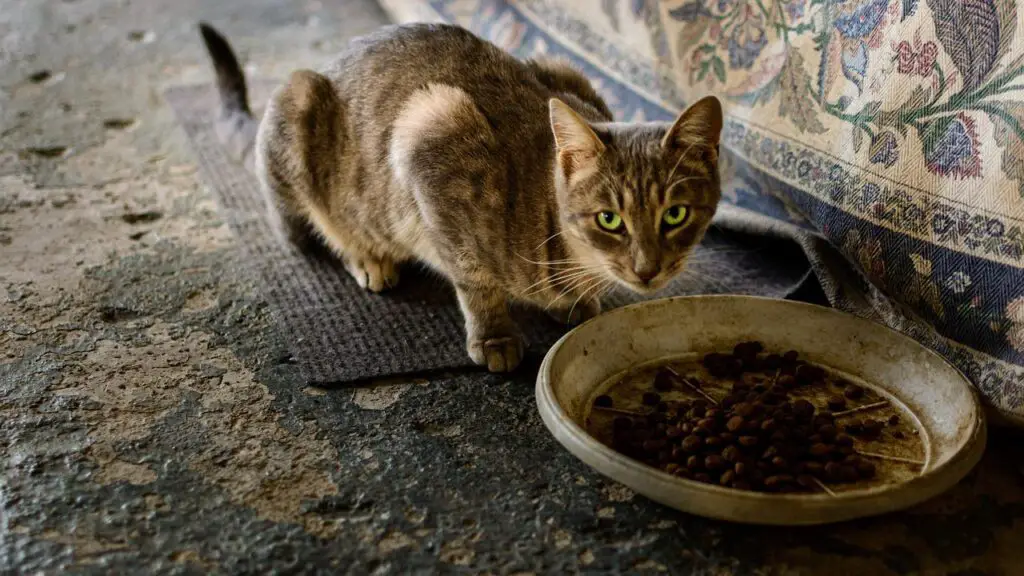Ever wondered how to apologize to your cat? Well, you’re not alone. Understanding our feline friends can be complex, but it’s crucial for maintaining a healthy, loving relationship.
Cats, like us, have feelings and memories and don’t quickly forget when we upset them. In this article, we’ll guide you on connecting and making amends with your fur baby, helping you prevent future misunderstandings.
You’ll learn that shouting or striking is never the answer. Instead, we’ll show you how to use gentle, positive reinforcement methods like offering treats or spending quality time together.
So, if you’ve unintentionally upset your cat, don’t worry. Take a deep breath, read on, and learn how to rebuild your bond with your feline companion. It’s all about understanding, empathy, and treating your cat with the love and respect they deserve.
- Key Takeaways
- Reasons to Apologize to Your Cat
- Effective Apology Methods to Your Cat
- Maintaining a Healthy Relationship With Your Cat
- Frequently Asked Questions
- What signs should I look for to determine if my cat is upset with me?
- How can I communicate with my cat if they don't respond positively to my apologies?
- Are there specific cat breeds that are more forgiving than others?
- How often should I apologize to my cat for repeated mistakes?
- Can a cat's age affect their response to an apology?
- Conclusion
Key Takeaways
- Apologizing to your cat is crucial for maintaining a strong relationship with them.
- Spending quality time with your cat demonstrates care and genuine remorse.
- Cats are forgiving and tend to move on quickly from minor mistakes or accidents.
- Be patient with your cat if upset, and give them space to calm down.

Reasons to Apologize to Your Cat
Sometimes, you might unintentionally offend your cat, and understanding why you must apologize is crucial for maintaining a strong bond with your furry friend. It’s not always about stepping on a tail or accidentally shutting them in a room. The reasons to apologize can be subtle, like ignoring their needs or changing their routine without warning.
Understanding cat behavior is key to recognizing these infractions. Cats are sensitive creatures, relying on you for love, care, and comfort. They can’t tell you verbally when upset or hurt, but they show it in their behavior. If your feline friend seems off or distant, it might be time to extend a kitty-style apology.
Remember, it’s about serving their needs, respecting their feelings, and mending the bond you share.
Effective Apology Methods to Your Cat
You’ll find that speaking softly and offering treats can effectively show remorse to your furry friend. This apology language can help to rebuild trust, showing your cat you’re truly sorry.
Spend quality time with them, perhaps engaging in their favorite playtime activities. Cats are forgiving creatures and will likely appreciate your efforts to make amends.
Slow blinking at your cat is another key apology method. Considered a ‘kitty kiss’, it’s a sign of affection that can help build trust. Be patient and give them space if they’re still upset.
Remember, shouting or physical punishment will only scare them and damage your bond. Always treat them with kindness and respect, reinforcing the love you share.

Maintaining a Healthy Relationship With Your Cat
Maintaining a healthy relationship with your furry friend involves more than apologizing when you’ve made a mistake. It’s about understanding cat behavior and building trust.
Cats are complex creatures, each with their unique personality and quirks. So, learning their specific likes, dislikes, and signals is important.
Invest time in observing your cat. Notice their body language, their purrs, their meows. This will help you respond appropriately, respecting their feelings and needs. This understanding fosters trust, proving you’re not just sorry but genuinely care.
Remember, it’s not just about the apology but the following actions. Give them space when needed, praise them when they’ve done well, and ensure they feel safe and loved.
That’s how you maintain a healthy relationship with your cat.
Frequently Asked Questions

Conclusion
In conclusion, it’s vital to understand and respect your cat’s feelings. Mistakes happen, but apologizing effectively can help mend any rifts.
Spend quality time, talk softly, and offer treats to show you’re sorry. Avoid shouting or striking, it only scares them. Redirect their attention instead.
A considerate approach can go a long way in fostering a strong bond with your furry friend. Always remember, your cat’s trust in you is priceless.
